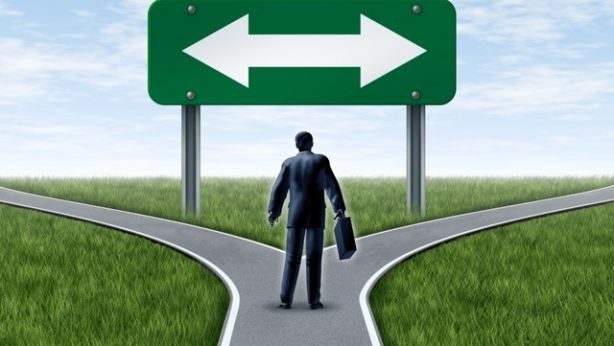My first introduction to the concept of “free will” was in early high school. One of the students in class asked our teacher how it was possible for us to have free will if Hashem knows everything, including what will happen in the future. Mr. Benabu, our teacher, gave the following explanation: You can think of your life as a movie on videocassette (yes, I know, I am dating myself!). Hashem has already seen the movie to the end, but he is no more in control of what the “actors” are doing than you are when you watch a movie that you have already seen. The “actors” in the movie are free to make their choices and determine the outcome, but the viewer already knows how it will turn out. A simple but very profound answer.
In parashat Nitzavim, Hashem offers the Jewish people a choice: “This day I call heaven and earth as witnesses against you that I have set before you life and death, the blessing and the curse. Therefore choose life, so that you and your children may live” (Devarim. 30: 19). Rashi explains that Hashem is telling us what is good and what is evil, but it is up to us to choose the right path. But are we truly free to make that choice?
My precocious classmate was not the only ones to ask such questions. The Talmud (Sotah, 2a) teaches that a man is paired with his mate based on his deeds. According to Rashi, this means that a righteous man is paired with a righteous woman and a wicked man, with a wicked woman. We also learn, later on, that this match is made 40 days before the birth of a child. If Hashem is pairing a man based on his deeds before he is born, then where is the free will to choose? Are righteousness or wickedness pre-ordained?
Several commentators, including Rashi and the Ra’avad (Rabbi Abraham ben David) argue that G-d has foreknowledge of the circumstances of each person’s life and the challenges they will face, not the choices one will make. The Rambam takes a different approach, suggesting that the divine is beyond our ken. For him, it is an article of faith. In truth, neither answer is truly satisfactory.
I recently came across a dvar torah by Rav Yeshaya Elazar in which he shared the analogy of a chess game between a novice and a grandmaster. While the grandmaster may know all the possible permutations of every move and may be able to predict the outcome of the game based on the opponent’s moves, the novice is still the one making all the choices at each and every turn. The layout of the pieces on the board are merely the circumstances that the player is forced to confront each time.
The question of free will is one that has preoccupied rabbis, theologians and philosophers for time immemorial. Clearly, it is not a question that can be resolved here in this limited space. However, we can take heart in the notion that each and every one of us has the ability to rise above our circumstances. There is hope!
After all the curses that Hashem has warned the people about, after 40 years of trials and tribulations in the desert, Moshe reminds them “Atem Nitzavim hayom kulchem”, you are all standing here today (Devarim 29:9). There is no need for despair. Hashem is here for us if we would just choose that path.
The Izhbitzer Rebbe held this to be the very essence of Jewish identity. The very name of our people, Yehudim, is taken from Judah. Recall that when the brothers appeared before Yosef in Egypt to face the accusation of theft, it was he who stepped up to defend them. When all seemed lost, he did not despair. He never gave up hope. (Bereshit 44:18).
Whether we truly understand free will or not, it is a principle that is central to our faith. We are free to make choices in life, free to overcome the circumstances or the obstacles in our way, free to strive for a better life, closer to Hashem, to our families and to klal Israel. We are free to make the time we have here count. The path is clearly laid out for us. All we need to do is take it.
Wishing you all a Shabbat Shalom and a Shana Tova Umetuka,
Dr. Laura Segall
Head of School

